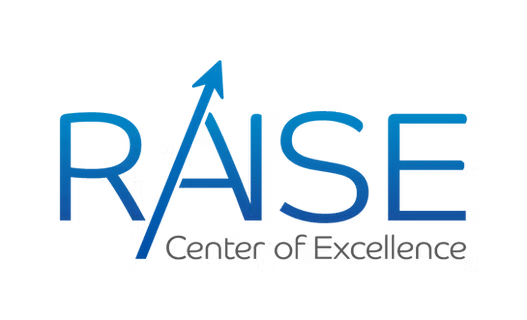Center of Excellence on AI and Simulation-Based Engineering at Exascale (CoE RAISE)
CoE RAISE is an EU funded project and CERN leads Work Package 4 (WP4) which aims at the development and expansion of AI methods along representative use-cases from research and industry, which have a strong focus on data-driven technologies, i.e., analyzing data-rich descriptions of physical phenomena. The outcomes are applicable to intelligent workflows including innovative AI methods and techniques, optimized on HPC-to-Exascale systems. The tasks contain the capabilities to evaluate prototype algorithms based on experimental and/or simulation data, code performance on Exascale HPC systems, and quality of data models.
Overview
CERN leads WP4 which contains four tasks:
- Event reconstruction and classification at the CERN HL-LHC, led by CERN (T4.1)
- Seismic imaging with remote sensing for energy applications, led by the Cyprus Institute (T4.2)
- Defect-free additive manufacturing, led by Flanders Make (T4.3)
- Sound Engineering, led by University of Iceland (T4.4)
Task 4.1 develops a GPU native and AI-based algorithm for particle-flow reconstruction that can easily be accelerated by modern heterogeneous hardware. This algorithm, called Machine-Learned Particle-Flow (MLPF), is developed in collaboration with CMS and acts as a representative AI use case from HEP. Some of the most important contributions from T4.1 include the implementation and execution of distributed training and large-scale hyperparameter optimization using HPC, significantly improving physics performance. Another area of work has been to optimize developed algorithms on various heterogenous architectures.
Highlights
In T4.1, the MLPF (Machine-Learned Particle Flow) studies on the open electron-positron collision dataset has been completed and focus has shifted back to simulated CMS-based datasets with proton-proton collisions. A strategic decision was made to migrate the optimization code of MLPF from TensorFlow to PyTorch. The reason for this is the superior support for cutting edge tools offered by PyTorch as well as its suitability for easy and fast development of new algorithms. The work started in 2023 and has now been completed. To further test the exascale potential of AI workloads like MLPF, a study on the neural scaling laws of MLPF was carried out using the new PyTorch version of the model and training code. This study was presented at the PASC24 conference in Zurich, Switzerland.
The CoE RAISE project came to an end in July of 2024 and the final EC review was carried out in September. The project received nothing but good feedback from the reviewers, who congratulated all project partners and praised the project outcomes.
Next Steps
CoE RAISE concluded its activities at the end of July 2024. Following this, the MLPF group will continue its work on AI-based particle flow reconstruction. However, this ongoing effort will experience a reduction in support from CERN openlab due to the cessation of funding associated with CoE RAISE.
Project Coordinators
Maria Girone, Andreas Lintermann
CERN Technical Team
Maria Girone, David Southwick, Eric Wulff Jessy Sobreiro, David Southwick, Eric Wulff
Collaboration Liaisons
Marcel Aach, Naveed Akram, Gabriele Cavallaro, Kurt de Grave, Arnis Lektauers, Andreas Lintermann, Morris Riedel, Nikos Savva, Eric Michael Sumner, Liang Tian, Eric Verschuur
Consortium members: https://www.coe-raise.eu/partners

The CoE RAISE project have received funding from the European Union’s Horizon 2020 – Research and Innovation Framework Programme H2020-INFRAEDI-2019-1 under grant agreement no. 951733

